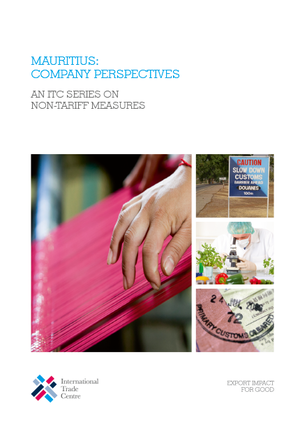Mauritius: Company Perspectives - An ITC Series on Non-Tariff Measures(en)
Mauritian exporters claim to be less affected by trade barriers than many other countries that have participated in the ITC business surveys on non-tariff measures. Among the 400 Mauritian firms surveyed, 27% of exporters were adversely affected by non-tariff measures; 36% of importing firms...




